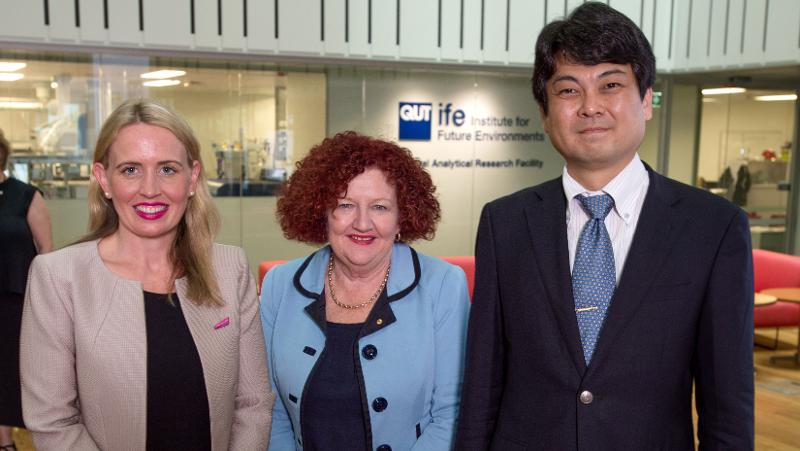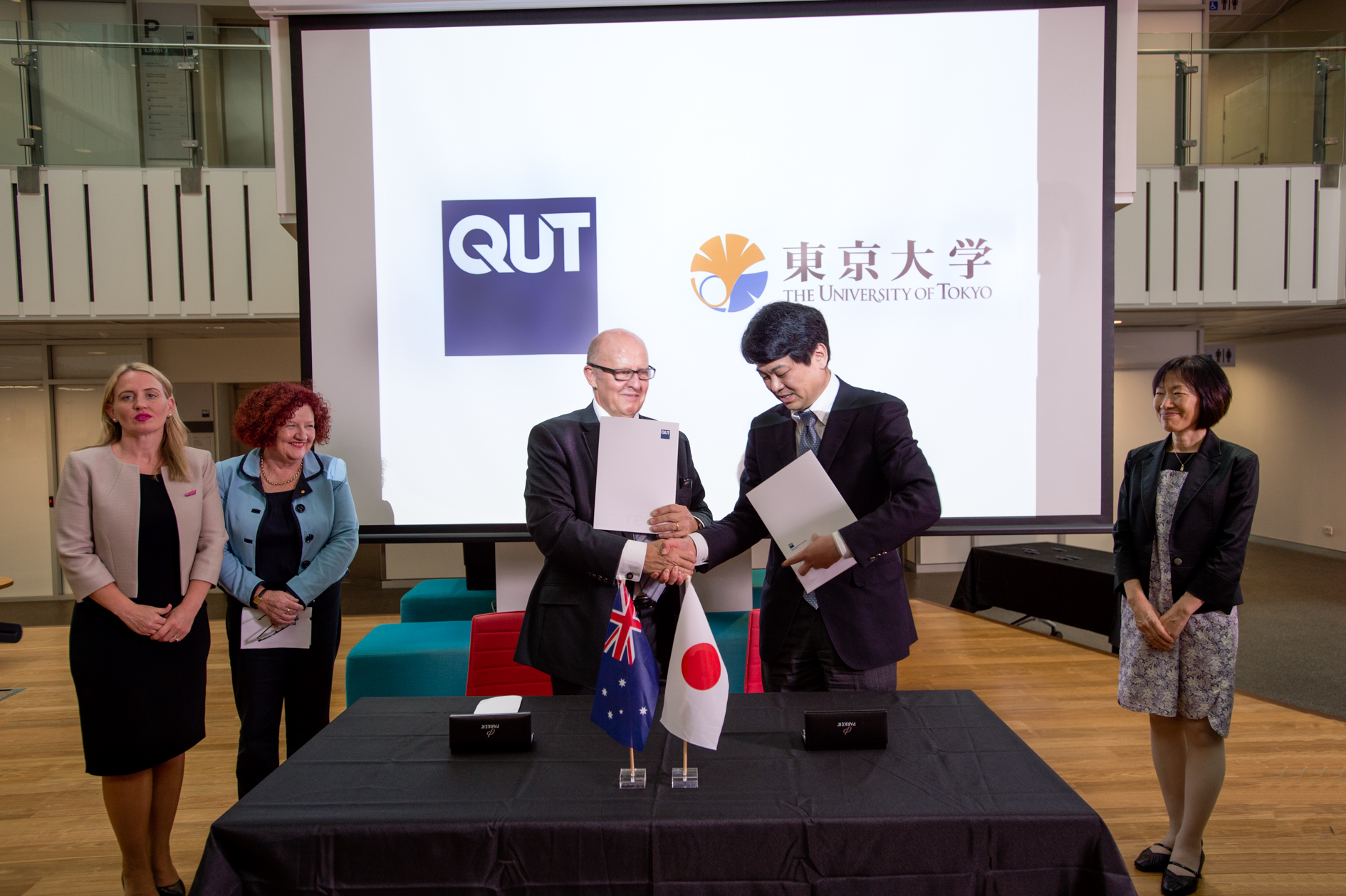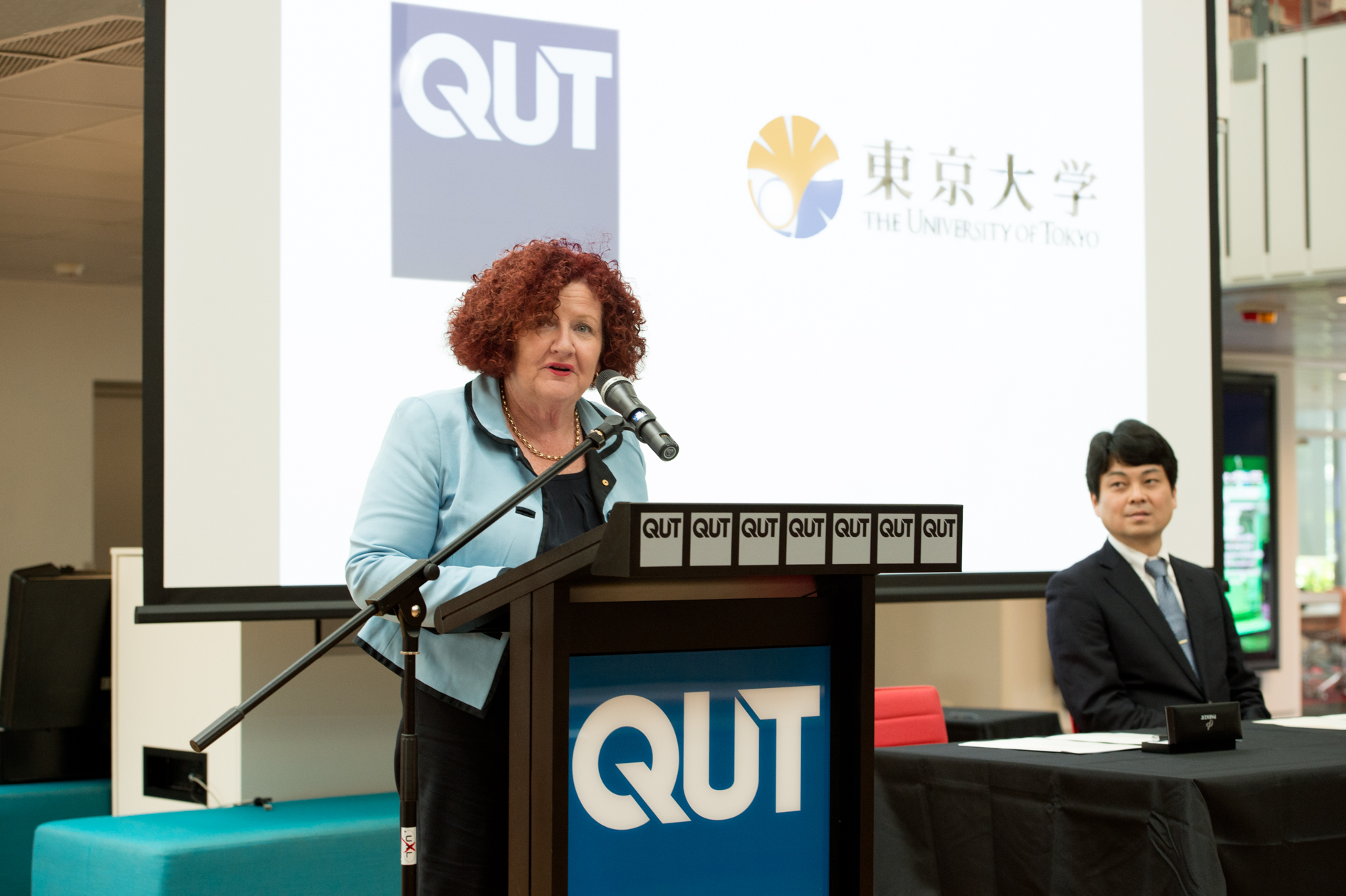
QUT today signed an International Cooperation Agreement to develop joint venture projects and facilitate joint academic and scientific activities with the Research Center for Advanced Science and Technology (RCAST) of The University of Tokyo (UTokyo).
This research partnership with UTokyo builds on the existing relationship with the Intelligent Transport Systems Center at UTokyo, and focuses on developing renewable energy and, in particular, the provision of next generation fuels to meet future global energy needs.
QUT Vice-Chancellor Professor Margaret Sheil AO represented QUT at today’s agreement signing ceremony, and the UTokyo delegation was led by Professor Masakazu Sugiyama, from RCAST joint research unit Sugiyama Laboratory.
Also attending were Queensland’s Innovation Minister Kate Jones, Acting Queensland Chief Scientist Dr Christine Williams, Consul-General of Japan in Brisbane Keiko Yanai, and representatives from Trade and Investment Queensland and Sumitomo Electric Industries.

(International and Development) Professor Scott Sheppard, Professor Masakazu Sugiyama, and Keiko Yanai.
Professor Sheil said QUT was excited to work collaboratively with RCAST to further research that has real-world global impact.
“The University of Tokyo is a leader in science and engineering research, and RCAST is positioned to deliver this knowledge through collaborations with industry and other universities and research providers around the globe,” she said.
“We are delighted to become a collaborator through the establishment of this International Cooperation Agreement.
“QUT’s Institute for Future Environments (IFE) has a purpose and outlook similar to RCAST with common alignments in many similar fields of endeavour, and particularly in renewable energy and fuels of the future, such as hydrogen.”

QUT IFE Professor Ian Mackinnon said for Queensland, the sustainable conversion of natural resources, such as waste biomass and non-potable water, into hydrogen was an important development for future domestic markets.
“Furthering research into these processes may allow development of a high-value Queensland hydrogen export industry, exporting particularly to countries that have limited natural resources,” he said.
“Professor Masakazu Sugiyama is a recognised leader in the sustainable conversion of solar energy to next-generation fuels through use of leading edge photovoltaics and compound semiconductors.
“More recently, Professor Sugiyama has demonstrated the highest level of in-field solar conversion efficiency using electrolysis to produce hydrogen from water.
“Integration of these technologies into Queensland, which has a strong capacity to implement solar-driven technologies, could lead to higher levels of efficiency and the establishment of new export industries for the state.”
Professor Mackinnon thanked Trade and Investment Queensland and its Tokyo office, and Sumitomo Electric Industries, which has been instrumental in renewable energy projects in Queensland, for their assistance in helping the two universities formalise the partnership.
QUT Media contacts: Karen Milliner, 07 3138 1841 or k.milliner@qut.edu.au
After hours: Rose Trapnell, 0407 585 901 or media@qut.edu.au


